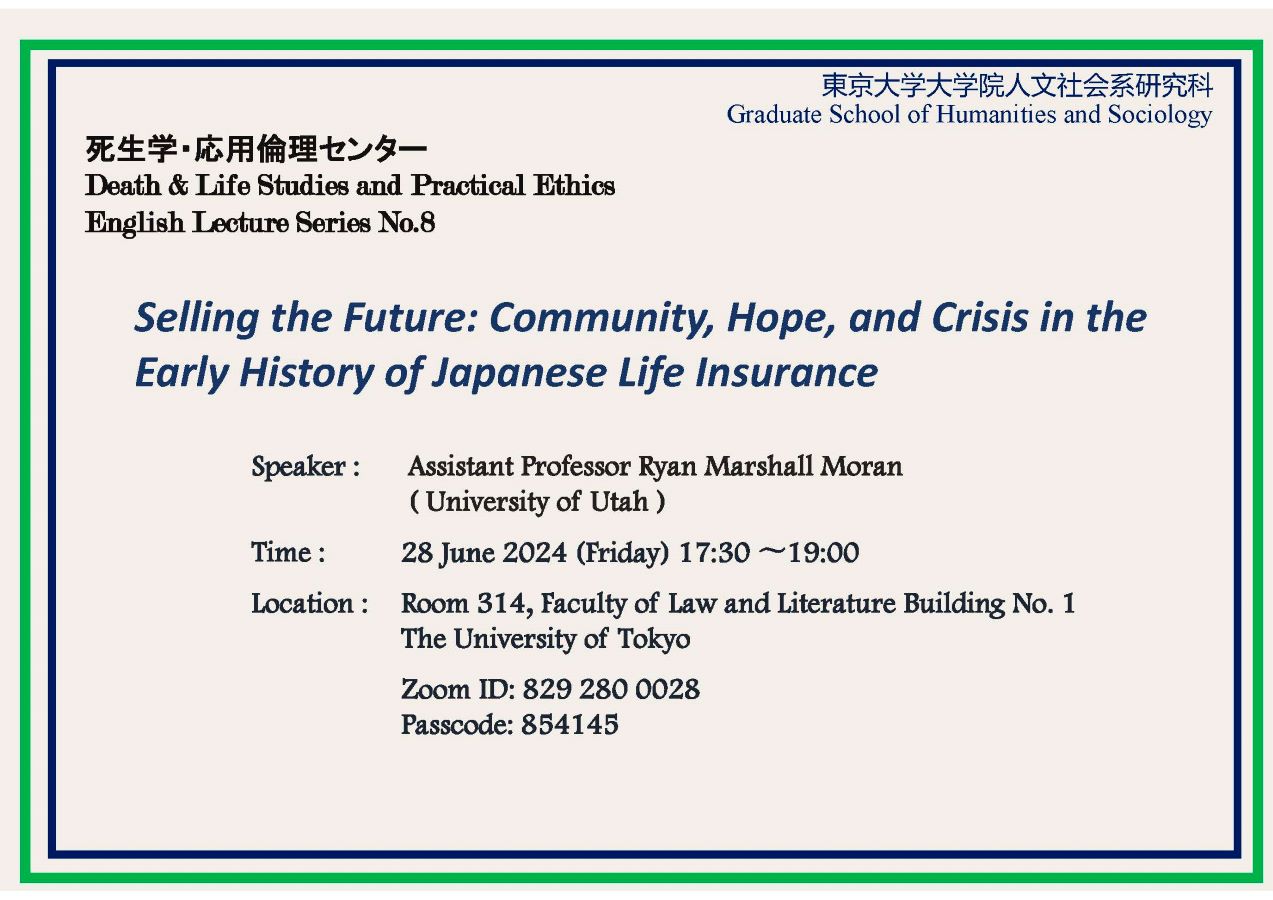Death & Life Studies and Practical Ethics Lecture Series
Number 008
Ryan Marshall Moran, "Selling the Future: Community, Hope, and Crisis in the Early History of Japanese Life Insurance"
【日時】2024年6月28日(金)17:30-19:00
【会場】 東京大学本郷キャンパス 文学部法文1号314教室
【オンライン会場】Zoom ID: 829 280 0028
【参加について】参加無料・事前予約不要
【使用言語】英語(通訳なし)
【主催】東京大学大学院人文社会系研究科 死生学応用倫理研究室
【共催】東京大学大学院人文社会系研究科
【助成】布施学術基金
※この講演会は布施学術基金により助成を受けています。
Speaker: Ryan Marshall Moran (University of Utah, Department of History, Assistant Professor)
Abstract: In Selling the Future, Ryan Moran explains how the life insurance industry in Japan exploited its association with mutuality and community to commodify and govern lives.
Covering the years from the start of the industry in 1881 through the end of World War II, Moran describes insurance companies and government officials working together to create a picture of the future as precarious and dangerous. Since it was impossible for individual consumers to deal with every contingency on their own, insurance industry administrators argued that their usage of statistical data enabled them to chart the predictable future for the aggregate. Through insurance, companies and the state thus offered consumers a means to a perfectible future in an era filled with repeated crises.
Life insurance functioned as an important modernist technology within Japan and its colonies to instantiate expectations for responsibility, to reconfigure meanings of mutuality, and to normalize new social formations (such as the nuclear family) as essential to life. Life insurance thus offers an important vehicle for examining the confluence of modes of mobilizing and organizing bodies, the expropriation of financial resources, and the action of disciplining workers into a capitalist system.


